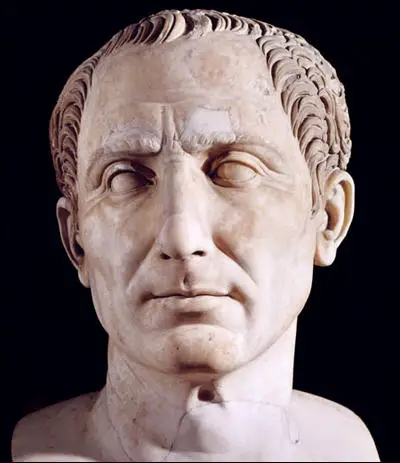
` Germanicus (Germanicus Julius Caesar, 15 BC – AD 19, military commander, etc. Caesar Strabo Vopiscus, a notable orator and poet, proscribed and put to death by Gaius. Tiberius (42 BC – AD 37, Emperor from AD 14)ĭrusus the Younger (Julius Caesar Drusus, 13 BC – AD 23, military commander, etc.) Gaius Julius Caesar Strabo Vopiscus, Gaius Julius L. Julius Caesar (100 BC – 44 BC, consul, dictator, etc.)Īugustus (Gaius Julius Caesar Octavianus, 63 BC – AD 14, emperor) Gaius Octavius, the future Emperor Augustus, was named Gaius Julius.

Sextus Julius Caesar IV (quaestor in 48 BC, military commander in Syria) For example, Julius Caesar, claimed that his family on his fathers side goes back. 90 BC or 89 BC, consul 91 BC, military commander) Gaius Julius Caesar Strabo (Vopiscus, c.130 BC - 87 BC, quaestor, aedile) 200 BC, military tribune, governor of Liguria) This list shows some of the male members beginning with the oldest ones, the years during which they lived and some of the important activities they performed in the Roman Republic. the one that survives and is born at the proper time is called Vopiscus. All its members had the nomen Julius and the cognomen Caesar. 1.45 But Gaius Caesar settled this universal disorder, and brought to an end. The Julii Caesar Family was a subdivision of the patrician Julii family in the Roman Republic. List of the Male Members of the Julii Caesar Family His adopted son Gaius Julius Caesar Octavianus (his nephew by blood), who became the first Roman Emperor.Ī grandson from Julia Caesaris and Pompey, dead at several days, unnamedĪffair with Servilia Caepionis, mother of Brutus 130 BC - 87 BC) was the younger son to Lucius Julius Caesar II and his wife Poppilia and younger brother to Lucius. Ptolemy XV Caesar (Caesarion) with Cleopatra VII, he would become an Egyptian pharaoh Geser became a war god especially popular with central Asian military societies, known to have spread from the Seljuk Turks and Sassanian Persians to Tibetan, Mongolian, Manchu and eventually Chinese mythologies by the time of the Qing dinasty.

In subsequent times, some authors think that "Caesar" entered Eurasian folklore as Geser of Rūm or Khrom, Geser Khan, or, much later, Geser of Ling (after a province of eastern Tibet). (See Caesar in Harpers Dictionary of Classical Antiquities.) Too, the family name "Caesar" had already been in the family for generations before Julius Caesar's birth.Ī third etymology, proposed by Ludwig von Doederlein, derives the name from caesius, 'grey'. It is not clear exactly which Caesar Pliny intended, but it is not Julius: his mother was still alive when he reached adulthood, and C-section was until modern times only sensible when the mother was dying. vii (in English)), on the other hand, says natus primusque Caesarum a caeso matris utero dictus, that the first Caesar was so called because he was cut from his mother's womb (see Caesarean section).
GAIUS JULIUS CAESAR STRABO VOPISCUS FULL
According to Sextus Pompeius Festus, the cognomen "Caesar" derived from caesaries, 'hair', and indicated that the founder of this branch of the family was born with a full head of hair (Julius Caesar himself was, ironically, balding).


 0 kommentar(er)
0 kommentar(er)
